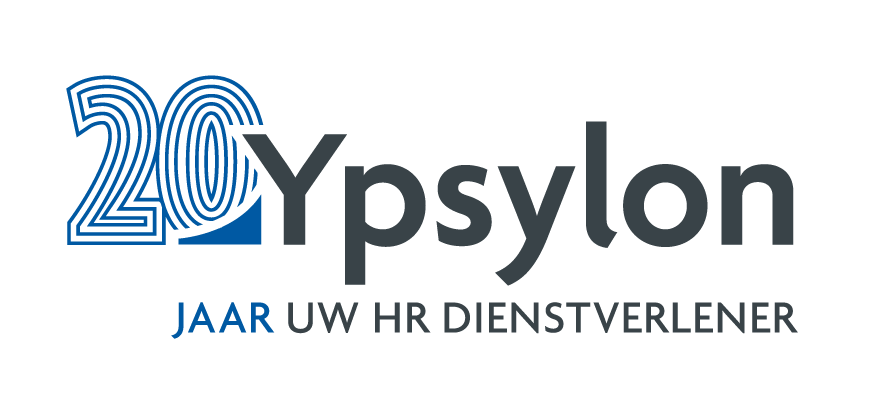In an era where processes are becoming increasingly efficient and AI is gaining a bigger share in the world of work, extensive research by Gallup shows that there is still a lot of growth possible for organizations by investing in human capital. human capital te investeren.
Only 15% of the employees feel really engaged!
According to Gallup, organic growth lies in creating a culture in which employee development is a top priority, and in addition developing great managers. Organizations grow when there are loyal and high engaged customers. These customers are not only satisfied with the services offered, but also keep coming back. You need high engaged employees to achieve this. Gallup research shows that only 15% of employees consider their job to be a great job! This while having a great job is at the top of the priority list of people, recent research shows! Having a great job is even more important than having a family and a home of your own. People who label their jobs as a very good job are people who are intrinsically motivated, they are willing to do extra work, inspire others, are more creative, more productive and experience better health and well-being! This survey also shows that 60% find their job completely uninteresting and are not motivated. There is a good chance that they will leave the organization in the short term, or perhaps even worse that they stay. great managers te ontwikkelen. Organisaties groeien vervolgens wanneer zij loyale en betrokken klanten hebben. Deze klanten zijn niet alleen tevreden over de geboden dienstverlening, maar blijven ook terugkomen. Om dit voor elkaar te krijgen heb je betrokken medewerkers nodig. Onderzoek van Gallup wijst uit dat slechts 15% van de medewerkers zijn baan als een great job bestempelt. Dit terwijl het hebben van een goede baan bovenaan de prioriteiten lijst van mensen staat, zo blijkt uit recent onderzoek. Het hebben van een goede baan wordt zelfs belangrijker gevonden dan het hebben van een gezin en een eigen huis. Mensen die hun baan als een hele goede baan bestempelen, zijn mensen die intrinsiek gemotiveerd zijn. Zij zijn bereid extra werk te doen, inspireren anderen, zijn creatiever, productiever en ervaren een betere gezondheid en well-being. Uit dit onderzoek blijkt tevens dat 60% zijn baan totaal niet interessant vindt en niet gemotiveerd is. De kans is dan ook groot dat zij de organisatie op korte termijn zullen verlaten, of wellicht nog erger, dat ze blijven.
ORGANIZATIONS ARE THE RESULT OF THE PAST
Actually, it is not all that complex. People just want a nice job, in which they experience meaning and purpose. But in the time in which we live, knowledge is far ahead of practice and that can sometimes be frustrating. And to be honest, in a time of great shortage on the labor market, organizations cannot afford talented employees to leave the organization. Almost all organizations struggle with this. But how can you change if the internal processes, systems and job descriptions are set up based on what was important in the past?
MILLENNIALS AND GENERATION Z CHANGE OUR WORLD FOREVER
These newcomers are changing the way we communicate, learn, and what meaning we give to a great job and a great life. It is these new generations who enter the workplace and use different values, norms and motives in the choices they make for both their careers and their private lives. They want a purpose instead of just a nice salary, they want a coach instead of a boss, they want attention for their qualities instead of focusing on the weaknesses and they see a job not only as a job, but as their life . Organizational culture and the right leadership are essential aspects and decisive for binding these generations and keeping them for the future.
THE KEY FOR SUCCES IS THE MANAGER!
Various types of managers are active within organizations. Gallup describes them as follows. The bad manager, the good manager and the great manager.great managerThe formula is simple - when there are less bad managers and more great managers you create an accelerator for growth! A good example is the way in which managers (and many others) handle giving feedback. Our human brain is programmed in such a way that it is easier for us to criticize than to appreciate. This while we do not like receiving criticism. We are motivated by getting appreciation. While criticism can be important, it makes much more sense to focus the feedback on what the person is good at. This will lead to more trust and therefore more engaged employees. An engaged employee then spends four times as much time on what he is good at, as opposed to what he is not good at. This is equally divided among employees who are not engaged.
75% of the engagement employees experience is determined by the manager
21% of employees believe that they are properly motivated to perform better
70% of teamengagement is determined by the manager
Gallup identifies two essential characteristics of a great manager - good decision making and the ability to bring teams together. When these skills are strongly present, organizations will be more agile and more ready for the future. The role of the manager is not simple, as they experience pressure from the top as well as pressure from the employees and the daily operation. Yet they are the key to achieving growth and continued attention to leadership development is needed. To enable real change, CEOs need to start believing in a culture where development is top priority and having very good managers is the most important factor for the success of the organization.
Only 22% of employees experience that there is a clear strategy within the organization
CREATE A WINNING FORMULA FOR YOUR ORGANIZATION
Essential steps for your organization
- Leadership programs that meet today's needs
- Teambuilding for management
- Company wide communication - share core values
- Embrace diversity and inclusion - develop necessary skills for managers
- No more annual meetings, but ongoing conversations
- More focus on strenghts instead of weaknesses. It is important to understand weaknesses, but more important to develop talents - create a strength based culture!
Essential steps for the manager
- Managers' awareness of the need to keep developing
- Create a continuous learning process - insight into your own strenghts promotes mutual cooperation and performance
- Mission and purpose - managers must be able to provide a clear direction
- Anable employees to discover their strenghts and to use them to be succesful
- The manager no longer as a 'boss' but as a coach
- Managers should cooperate well with other managers - no we / they thinking
- Managers need to be able to bring teams together
- They also need to be able to make great decisions
- As a manager, ensure to be inspiring and also ensure that agreements are kept
CREATE A STRENGTH BASED CULTURE
It remains an interesting process to turn an organization into a well-oiled machine and to let it run at full speed. Nothing is as nice as an organization with a good vibe, a vibrant dynamic, where creative ideas are the rule rather than the exception, successes are celebrated and people experience personal growth. We see the creation of a culture based on strenghtsstrength based) as a great start for creating a positive movement in organizations. A new and refreshing dynamic will emerge from both managers and employees, from which a lot of spin-off will arise. Although the importance of working on weaknesses should not be underestimated, the growth potential of the further development of strenghts is many times greater. Barbara Fredrickson's broaden and build theory is a nice addition to this positive view of people and organization. This theory assumes that stimulating positive emotions (pleasure, interest, gratitude, etc.) provides a breeding ground for developing relevant skills (build relationships, curiosity, creativity). Incorporating such a positive element of experience into development programs is therefore essential to take advantage of this science.
Despite leadership development programs in many organizations, the question is to what extent the material offered is in line with today's market needs. Developments within leadership programs have stood still for a long time and with the newcomers to the labor market, there seems to be an increasing gap between the qualities of the manager and the needs of the organization and the employees.
The realization of organic growth has become a choice based on the story described above. It is about investing properly in an organizational culture in which development is at the top of the agenda. In addition, it is about continuous investment in the development of managers, so that they become great managers if they are not already. Only in this way will organizations succeed in enhansing employee engagement, so that customer satisfaction can also be taken to a higher level, so they become highly engaged.
I can't imagine a better formula for growth….


